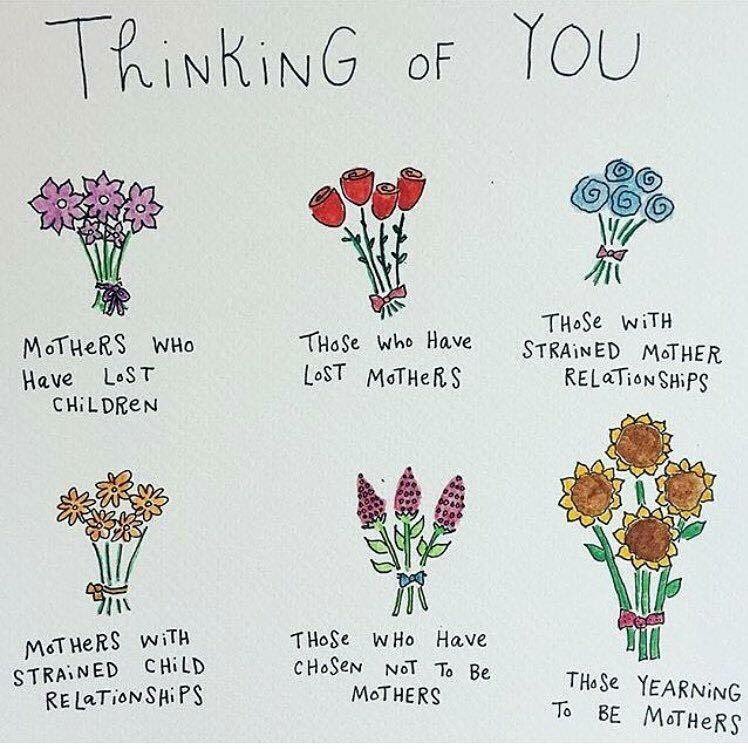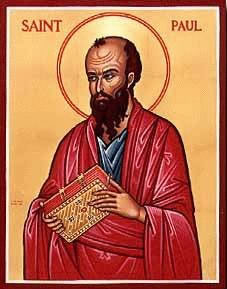Happy Mother’s day
As a
pastor, a relatively minor irritant with the continued secularization of the
world is the way in which the majority of people, including the majority of
Christians, continue to mark the passage of time with secular dates and occasions. Now, this wouldn’t be a problem normally –
heck, go ahead and celebrate arbor day as much as you’d like. It’s very difficult to argue with the simple
sentiment of ‘go plant a tree.’ But
something that is a minor irritant is the presence of a secular celebration
along the lines of mother’s day, even though the readings in our lectionary don’t
have much to do with mother’s day.
Now, as
I say, the average person expects some mention of Mother’s day on Sunday, as
well they might. This is how we mark
time now, these are the seasons, but unfortunately, as with all secular
celebrations, mother’s day comes with some baggage attached to it. And these days, mother’s day has more baggage than it ever has. Consider this image, if you will.
This
image is something that I have seen circulated an awful lot, or images like
it. Images that speak to the
difficulties in mother’s day, because, like it or not, mother’s day isn’t easy
for an awful lot of people. It’s not
easy because of the immense pressure that exists within the framework of
mothers’ day. For Mother’s day has risen
to a fever pitch, as all celebrations do which revolve around the perfection of
any human class of people. When mother’s
day hits, I’m sure it’s nice and easy for all those people who have perfect
mothers, and who have perfect relationships with those mothers, but for those who
do not, things are significantly more complicated. The commentary that I hear are from people
who don’t have a perfect life with their mothers or with their children; they
may not have access to them, they may have died, they may not get along, they
may not be able to have children, any of these can and have come up, and normally,
these things are perfectly easy to deal with from a Christian perspective – we live
in a fallen world in which thing frequently don’t work out. But the trouble is,
when you are running the secular next to the sacred, and the secular takes
over, all of a sudden, the fallen world conversation fades into the background
behind the immense pressure of the perfection of mother’s day. And on mother’s day, you are impelled by and
immense cultural narrative to say that you have a perfect relationship with
your mother, or with your children, and that your mother is the best ever.
Well, I’m
here to take the pressure off of you, to let you know that you don’t have to
pretend. And by me, I mean St. Paul.
I am so
glad that we had the reading
that we did from Acts on Sunday, where Paul talks about the fullness of the
Gospel, and the issue of the fullness of the Gospel is that it deals with what
humanity actually is. And what that
means is that we, as humans, are sinners.
We had a baptism on Sunday, which allowed me to remind everyone who was
at church that they had all agreed with the reality of the statement that we
are all conceived and born sinful. It’s
easy to say that about the people you work with, it’s easy to say that about
fellow parishoners, it’s easy to say that about your boss or the people in
traffic, but the fullness of the Gospel means that it applies to your mother as
well. Your mother certainly agreed with
that sentiment when she brought you to be baptized, because she knew that you were
conceived sinful. She knew that you were
going to be born with the propensity for deception, the desire to steal, the
ability to lie as soon as you were able to do so. Your mother understood that about you, which
is why she brought you to be baptized.
And in that same sense, you understand that about your co-workers, the people
who make your sandwiches, the people who fix your cars, whatever. The people who seem to let you down an awful
lot. The people who can’t be trusted
with an unlocked door or an unsecured bike. The people who must be watched lest
they thieve and steal. This illustration
is getting a bit long in the tooth now, but do you remember the Vancouver
riots, where the Canucks lost the Stanley cup?
There was mass rioting and looting, and regular people, once it became
clear that nobody was going to stop them or arrest them, smashed everything they
could. The most alarming thing about
it was not that there were a bunch of people smashing the place up, but rather
that these people were smashing their own city. These weren’t rioters trucked
in to destroy, these were just regular
people, once restraints were removed. Okay, so if your mother understood
your sinfulness, and you understand the sinfulness of other people, then you
should really be able to understand that your mother is sinful as well. She was conceived and born sinful just like
the rest of us.
Does
that bother you? It might, especially on
mother’s day, but I would ask you an important question, which is that what is
the alternative? Is the alternative to
pretend that you have a perfect relationship with your families? Is it to pretend that everything went well
the whole time? Go ahead and try that
out, but right now, we as a society are bringing that harvest home. Even after this selection of flowers above,
there were still people who said that these categories didn’t go far enough. There should be acknowledgement of those who
had abusive mothers, those whose children were taken from the by the courts,
those who have been disowned, birth mothers and surrogate parents, and on and
on and on. And it’s true, that image
above doesn’t include all of those, but you can’t possibly come up with a
graphic big enough to include all the ways in which things are not ideal in
your own particular circumstances.
For
everyone is broken in their own way. And
if all that mother’s day does is to hold up an ideal to be celebrated, then all
we will be able to do in response is to look at the ways in which we are not meeting
up with that perfection. It will only hurt if you are looking for perfection
where it is not. And all the cultural
weight of mother’s day is built up around celebrating mothers and how great
they are. This will automatically make
you feel worse.
Paul
understood something, a lesson from his whole life. Think about his life before
his conversion. He had been a Pharisee
of Pharisee, a Hebrew of Hebrews, circumcised on the eighth day, as to the law,
blameless, but he took all that and counted it as rubbish for the sake ofgaining Christ as his Lord. And this is why he is so keen to bring up the
fullness of the Gospel, because the fullness of the Gospel is the one thing
that lets you celebrate mothers, or indeed anyone, with anything even vaguely
resembling realism. If you don’t have the fullness of the Gospel, then you have
to do one of three things: check out of mother’s day altogether, pretend that
your mother is perfect which isn’t true because none of them are, or become
tortured with the reality of your experience next to the required perfection.
But if
what perfection worked for you instead of against you? What if you actually
believed in the Gospel of Jesus Christ?
What if you believed in the power of forgiveness of sins in the real
world? What if the Gospel of Jesus Christ wasn’t just vague idealism, but
was instead the only thing that lets us love one another. We love, after all, because he first loved
us. And once you have realized how much
you need to be forgiven, how much you have done, and your propensity for evil
that you have, then it becomes much easier to smooth over relationships with
your mother because the pressure for her
perfection is not there. You can’t blame her for not being perfect any more
than she can blame you for not being perfect, because you are both sinful, both
broken people. And you’re both forgiven
people, too.
Christ’s
words aren’t just there to take up space, they are the power of God in the world,
and the more we ignore them, the worse we end up, because we expect perfection
to exist where it does not. It’s not
found in our homes or families, it’s not found in our desire for everything to
be just so, and it’s not found in the
flowery pages of the Hallmarks and Carltons.
The perfection that we are looking for exists outside us, which means
that we can’t blame anyone for not meeting up with it. We aren’t perfect, we are forgiven. And that
means that we can look at each other, mothers included, in the same way as God
looks at us: Rejoicing where we do what is right, and forgiving where we have
done wrong. And whichever of these issues
that you may be having, whether they be strained relationships with your
mothers, problematic home life, distant
people, or even a death in the family, these are all things that the Gospel of
Jesus Christ are there to overcome.
And the
best thing about the Gospel is that it doesn’t matter if it’s mother’s day, or
any other day, the Gospel is there to address these real world issues that plague
and bother us. It’s not theory, it’s
absolutely practical.




